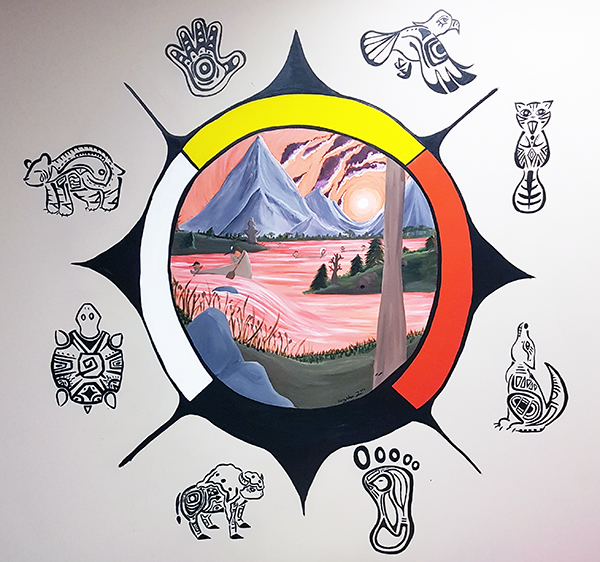With decades of systemic injustices to Indigenous children, youth and families, the path to Truth and Reconciliation faced by children’s aid societies and the field of child welfare as a whole, is a long and difficult road to take. Despite the many obstacles to face and knowing the past can never be undone, the child welfare field is committed to changes that will prevent future failures in working with our country’s Aboriginal, First Nations, Metis and Inuit people.
The Truth and Reconciliation Commission’s summary report released in 2015 was a call to action for Canada’s child welfare system. The Commission directly related the current overrepresentation of Aboriginal youth in child welfare today to the “intractable legacies of residential schools”. In 2017, the Ontario Association of Children’s Aid Societies acknowledged and apologized for the harmful role child welfare played, both historically and currently, in the lives of Indigenous children, families and communities within the province. At this time, Ontario’s child welfare sector unanimously agreed to prioritize Reconciliation with Indigenous communities through nine key commitments.
Locally, The Children’s Aid Society of Hamilton is working to implement the Indigenous Commitments through a variety of initiatives, committees and learning opportunities. Small, yet positive steps have been made as the Society continues to have discussions with local Indigenous groups and actively participate as a member of the Indigenous Child Welfare Collaborative.
Through the past year’s workplan tangible goals within its practice to help guide the work of the agency were achieved. These included the development of policy and guidelines regarding smudging practice at the agency, facilitation of a Land Acknowledgement at all agency events, participation in awareness-building events such as Orange Shirt Day, mandated staff training and identity data collection. Work has also commenced in the revision and expansion of the agency’s protocol with Hamilton Regional Indian Centre to include other Indigenous organizations in the Hamilton area.

Most recently, the agency welcomed Tammy Hill to the temporary, contract role of Indigenous Consultant. Her role in providing support and guidance will be instrumental for the agency to move forward in fulfilling the Truth and Reconciliation Commitments.
Ms. Hill brings tremendous experience and knowledge to the role having worked with the development of structures, policy and procedures, training programs, support mechanisms, as well conducting frontline work with Indigenous families in a variety of sectors. The Society is both pleased and humbled that she is willing to work alongside the agency to better understand the injustices against Indigenous families and the resulting intergenerational trauma and overrepresentation of Indigenous children in child welfare occurring today.
Working part-time, over the next few months, Ms. Hill will focus on conducting an environmental scan to assess where the agency currently is in its relationships with the Indigenous community, its understanding of historical colonization and its impact today, the programs and services currently offered as it relates to fulfilling the Commitments, etc. Focus groups will help inform her assessment and will at the same time allow for teachings to those participating from various stakeholder positions. Ultimately, Ms. Hill will be developing a work plan that will not only guide the agency in this tremendously important work, but have measures in place to sustain it without the assistance of a consultant.
One of the most important steps to take in this work is to build relationships with the Indigenous community, to learn from their experiences and teachings and to ensure the organization remains accountable to Indigenous communities. Ms. Hill will be seeking to understand what is going well with the agency’s work with Indigenous agencies, children, youth and families, as well as identify areas where improvements and change are necessary.




